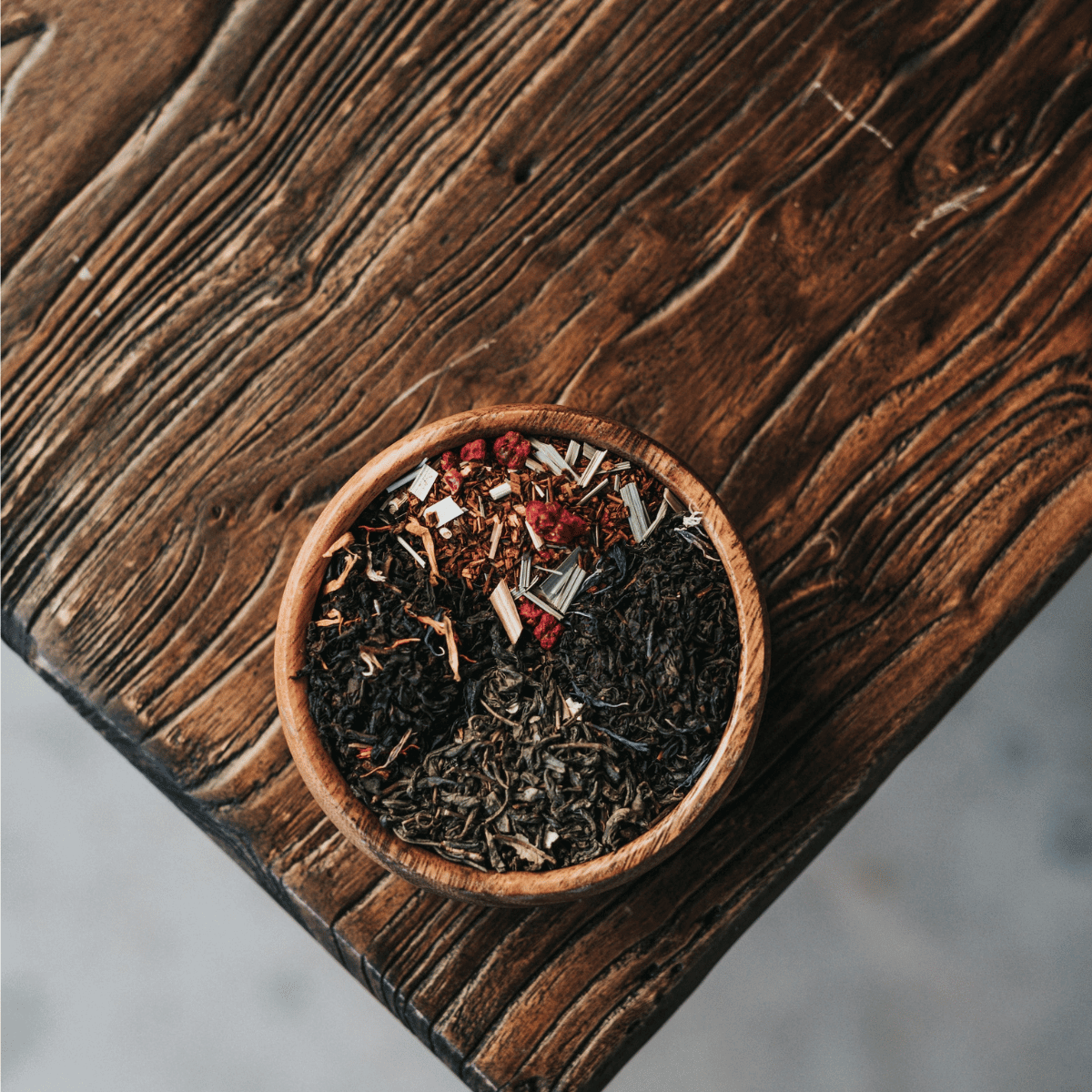Can I smoke arnica?
Arnica is a type of flower native to the mountainous regions of Siberia, central Europe, North America, and Central Asia. This herbaceous plant has other common names such as mountain tobacco, mountain arnica, wolf’s bane, and leopard’s bane.
Apparently, it has been used as a homeopathic remedy for osteoarthritis, cough, indigestion, and muscle aches for centuries. While this plant has been used medicinally for so long, it's only recently that people have started making tea out of arnica flower heads. This recent popularity in tea brewing has led to a lot of questions about whether you can smoke arnica flowers to alleviate pain.
History of arnica
Arnica is a perennial plant that has been used for centuries to treat injuries and sore muscles, but still more doi researches need to be done to confirm those claims. It's also used as a tonic and in cosmetics. The name arnica is derived from the Latin word "Arnica Montana L”. Arnica Montana has a spreading subterranean stem and a cylindrical, hairy rhizome from which it emerges.
This perennial plant has been used since ancient times, but it was not until the late 1800s that it came into commercial use as a medicine. The story says arnica was first used by Native Americans and European settlers who suffered from bruises and sprains during their journeys to new lands.
Intensely bitter and caustic, arnica's aroma and flavor are reminiscent of pine needles.
Common uses of the plant
Homeopathy: Homeopathic arnica has been used for a very long time. The use of arnica extends as a natural pain reliever, as well as an anti-inflammatory and anti-anxiety remedy.
Homeopathic medicine is a form of medicine in which practitioners use highly diluted substances to treat symptoms rather than disease.
Arnica gel can be used to help with bruises, sprains, strains and other injuries that cause pain and swelling. It also helps with joint pain and inflammation caused by arthritis or other chronic conditions like allergies or asthma.
The essential oil extracted from Arnica flowers stimulate the healing process of osteoarthritis.
A little disclaimer here. We always need more peer-reviewed studies before assuming any health benefits of anything. Always consult your health practitioner before using any product as we are not health professionals, and do your own research as well. You should never consume a product without fully understanding all the pros and cons.
What is arnica really?
Arnica is a genus of medicinal plants in the daisy family (Asteraceae/Compositae) known for their ability to improve circulation, treat bruises and gastroenteritis, and reduce pain. At first glance, it may seem like an odd herb to use for smoking.

Photo by Nataliya Vaitkevich from Pexels
Arnica is not considered a tobacco product nor a drug. The plant is usually used to treat bruises and sprains as a homeopathic remedy, and it's also been used as an ingredient in cosmetics. However, there is no scientific evidence that proves it works as an anti-inflammatory or analgesic beyond the placebo effect. So again, consult your doctor before consuming any arnica product.
Is arnica poisonous?
Many people wonder if arnica is poisonous, and it actually can be! The plant contains an extract called arnidin, which is toxic to the liver, kidneys, and nervous system. It can be lethal if ingested or applied to the skin in high doses.
Is arnica an herbal remedy?
Arnica is an herbal remedy that can be used to treat bruises and muscle aches, among other things mentioned before. The plant has been used by herbalists and naturopaths as a tincture or topical cream to relieve pain and inflammation. More studies need to be done to really confirm the actual benefit of the plant.
Is arnica a stimulant?
Arnica is a stimulant. That's why it is believed to help with bruises and other injuries.
Potential health benefits of smoking arnica
Arnica contains flavonoids, and sesquiterpenoid lactones, such as helenalin and dihydrohelenalin, which have been identified in German research. Arnica's anti-inflammatory and analgesic benefits can be attributed to the pharmacological characteristics of these chemicals. Yet further research is necessary to prove any of those claims.
For many people, the benefits of smoking arnica flowers are just not clear. Arnica flowers are used for medicinal purposes to treat bruises and muscular pain, so what are the benefits of smoking the flower?
Well, actually, as some of you might wonder, smoking arnica does not have the same effects as any arnica herbal medicine you might find in your pharmacy. The arnica smoke is not considered to be a medicine, but rather a flavoring agent to add to your favorite legal herb or any herbal smoking blend. Therefore, it does not have any effect on the body and does not heal anything.
In addition, there is no evidence that smoking arnica has the same effects as the topical arnica medication we use.
Does arnica present some health concerns if smoked?
The answer is yes. There are some health concerns if arnica is smoked. Here's why:
- Arnica has a bitter taste, which makes it easy to swallow accidentally. This could lead to an allergic reaction or even poisoning.
- Arnica can also cause upset stomach, nausea, and vomiting. This is due to its high concentration of salicylates (a type of aspirin).
- The active ingredient in arnica, acteoside, has been shown to cause damage to the liver when taken for long periods or in high doses.

So again, as we already said, you should always consult your health practitioner before smoking anything. Smoking anything is harmful to your health and you should not do it if your are pregnant or breastfeeding.
How does arnica make you feel?
Arnica can have some pretty powerful effects if taken in high doses or over a long period of time.
It is not recommended to smoke arnica, because it can cause severe respiratory problems. If you are trying to quit smoking and want to avoid the possible side effects of smoking arnica, you will need to seek out a safer alternative. You can also learn more about other smokable herbs such as chamomile, wild dagga, mullein and lavender.
Can it be toxic?
Research on arnica's toxicity is currently inconclusive. Even with that, you should always be super careful while consuming new medicine/plant/anything. The genuine plant, if consumed alive (so not dried basically), can be extremely harmful to the liver and may even be deadly.
How does smoking arnica work?
Smoking arnica has been used for many years by humans, and it was even smoked in certain civilizations.
The reason why people used to smoke arnica was that it was supposedly having an effect on the nervous system and was believed to help treat in treating injuries and diseases that affected nerves. However, and obviously, as this was many years before, no scientific studies can confirm those claims yet, so do not expect something crazy if you try it.

It's also important to note that smoking arnica is not recommended unless you have a doctor's prescription for it or have already been diagnosed with any kind of illness or injury that requires treatment with this herb.
However, apparently, some researchers found that smoking arnica could cause serious side effects including heart problems, lung irritation and inflammation, and blood vessel damage. These side effects were even more likely to occur if you smoked too much arnica at once.
Because of these risks, smoking arnica is not recommended in large doses—even in cases where other forms of treatment are not an option.
Conclusion - Can I smoke arnica?
Smoking the herb defeats the purpose of its healing benefits, there's no surefire scientific proof that it is beneficial to inhale Arnica. It would be very easy to hurt yourself from doing something like that, and there is no evidence that smoking arnica is beneficial in any way.
As recreational smokers are trying to steer away from tobacco and find natural alternatives to roll their spliffs, lavender and other popular smokable herbs like Mullein, Damiana, Mugwort, Wild Dagga and even Rose Petals have seen their popularity increase significantly.
It is very important to clarify that no scientific study has approached the subject of health benefits from smoking anything.
At Spliff we always recommend you consult your doctor before smoking or inhaling anything.
*This article is not to be interpreted as a statement of any form by Spliff but merely a compendium of information compiled from other sources. These statements have not been evaluated by Health Canada, FDA or any other regulatory body. Consult your doctor before ingesting or smoking any herbal product.*
WANNA LEARN MORE ABOUT ARNICA? BROWSE OUR SOURCES BELOW!
Kriplani, P., Guarve, K., & Baghael, U. S. (2017). Arnica montana L. - a plant of healing: review. Journal of Pharmacy and Pharmacology, 69(8), 925–945. https://doi.org/10.1111/jphp.12724
Friedmann, D. P. (2016). Homeopathic Arnica. Dermatologic Surgery, 42(1), 128. https://doi.org/10.1097/dss.0000000000000532
Cameron, M., & Chrubasik, S. (2013). Topical herbal therapies for treating osteoarthritis. Cochrane Database of Systematic Reviews. https://doi.org/10.1002/14651858.cd010538
Gulick, D. T., Kimura, I. F., Sitler, M., Paolone, A., & Kelly, J. D. (1996). Various treatment techniques on signs and symptoms of delayed onset muscle soreness. Journal of athletic training, 31(2), 145–152.
Ivanova, D., Deneva, V., Zheleva-Dimitrova, D., Balabanova-Bozushka, V., Nedeltcheva, D., Gevrenova, R., & Antonov, L. (2018). Quantitative Characterization of Arnicae flos by RP-HPLC-UV and NIR Spectroscopy. Foods, 8(1), 9. https://doi.org/10.3390/foods8010009
Ernst, E. (2003). The benefits of Arnica: 16 case reports. Homeopathy, 92(4), 217–219. https://doi.org/10.1016/j.homp.2003.07.001
Rutten, L. (2004). The benefits of Arnica. Homeopathy, 93(1), 63. https://doi.org/10.1016/j.homp.2003.11.008
Self-medication practice in pregnant women from central Mexico. (2018). Saudi Pharmaceutical Journal, 26(6), 886–890. https://doi.org/10.1016/j.jsps.2018.03.008
Friedmann, Daniel P. MD, FAAD Homeopathic Arnica, Dermatologic Surgery: January 2016 - Volume 42 - Issue 1 - p 128 doi: 10.1097/DSS.0000000000000532







Leave a comment
All comments are moderated before being published.
This site is protected by reCAPTCHA and the Google Privacy Policy and Terms of Service apply.